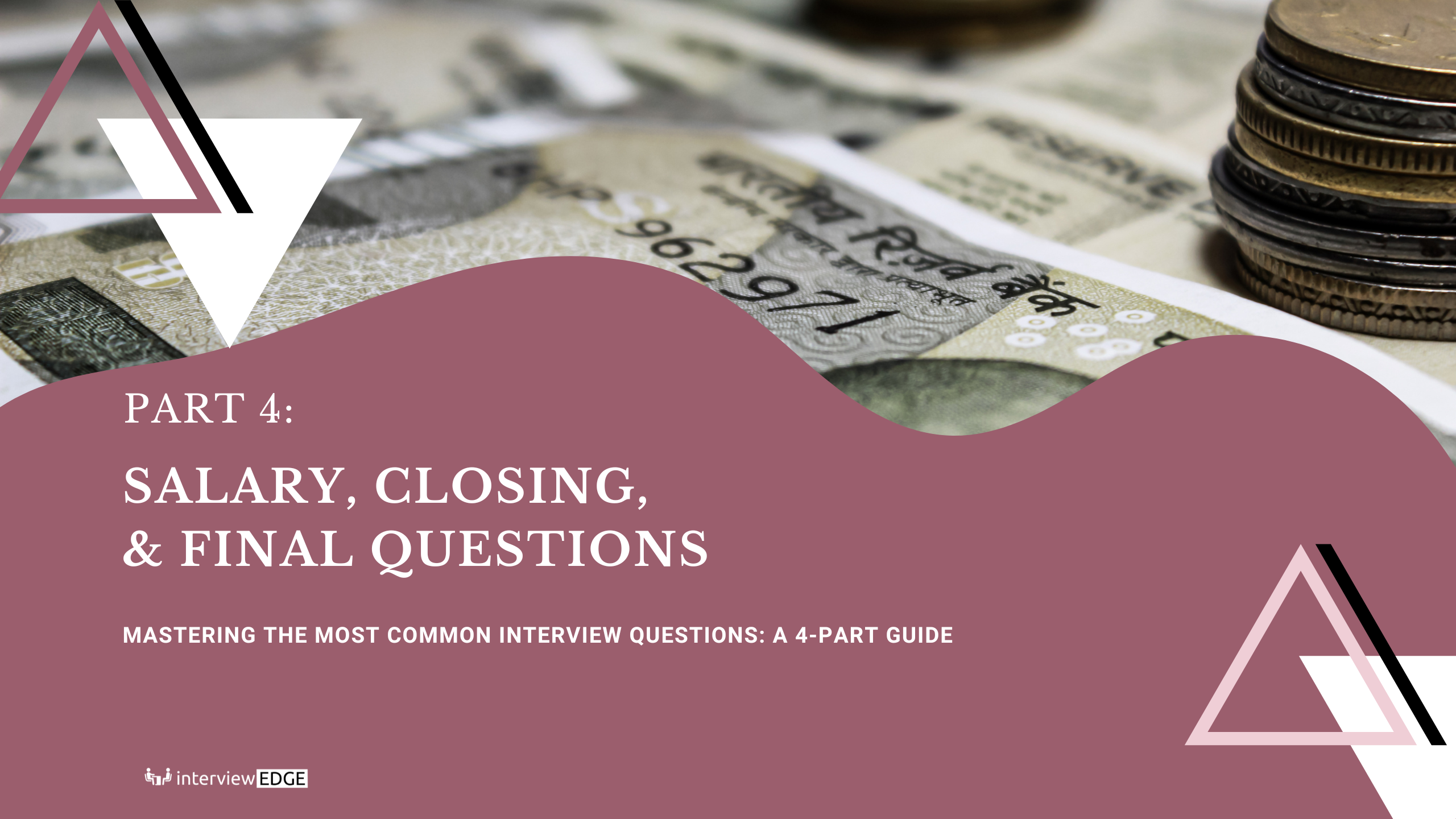
Ending Strong: Answering the Final Interview Questions
The last stage of an interview is crucial. These questions help employers assess your confidence, expectations, and long-term vision. Let’s break them down with effective responses.
- What are your salary expectations?
✅ Research industry standards beforehand.
✅ Be realistic and open to negotiation.
✅ Give a range instead of a fixed amount.
Example: For a corporate job:
“Based on my experience and market research, I believe a salary range of ₹10-12 LPA is appropriate, but I’m open to discussing other benefits and growth opportunities.”
For a government job (contractual position):
“I understand the pay scale structure and am comfortable with the offered range. My priority is contributing to the role effectively.”
- Why are you leaving your current job?
✅ Stay positive and professional.
✅ Focus on growth opportunities, not negativity.
Example: For an IT professional:
“I’ve gained valuable experience at my current company, but I’m looking for a role where I can work on larger-scale projects and expand my expertise.”
For a PSU aspirant shifting careers:
“I have always wanted to work in the public sector, where I can contribute directly to policy implementation and governance. This role aligns with my long-term career goals.”
- Do you have any questions for us?
✅ Always ask at least one thoughtful question.
✅ Show curiosity about the role, company culture, or growth opportunities.
Example:
- “What does success look like in this role over the first six months?”
- “Can you tell me more about the team I’ll be working with?”
- “What are the biggest challenges faced by someone in this position?”
- How do you see yourself contributing to our company?
✅ Show enthusiasm and highlight your strengths.
✅ Link your skills to the company’s goals.
Example: For a startup role:
“With my experience in digital marketing and brand positioning, I can help scale your online presence and increase customer engagement.”
For a teaching position:
“I bring innovative teaching techniques and a strong commitment to student success, which I believe will enhance the school’s academic results.”
- Where do you see yourself in five years?
✅ Balance ambition with realism.
✅ Align your growth with the company’s direction.
Example: For a finance professional:
“I see myself taking on leadership roles in financial analysis, contributing to strategic decision-making within the company.”
For a public sector role:
“I aim to grow within the department, taking on responsibilities that allow me to contribute to policy-making and implementation.”
Wrapping Up
A successful interview isn’t just about answering questions—it’s about demonstrating your value, confidence, and readiness for the role. From technical expertise to salary discussions, every stage of the process helps employers assess your fit within their organization.
With this 4-part series, you now have a structured approach to handling the most common and challenging interview questions. By preparing thoughtful, strategic responses, you can showcase your skills, stand out from the competition, and leave a strong impression.
Thank you for following along! Wishing you all the best in your interviews. Happy Interviewing 🙂
